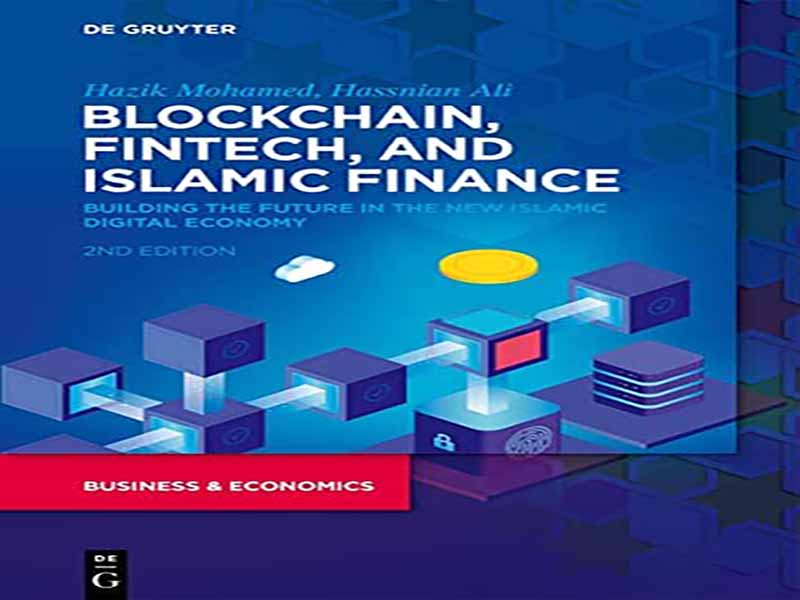- عنوان کتاب: Blockchain, Fintech, and Islamic Finance
- نویسنده: Hazik Mohamed, Hassnian Ali
- حوزه: بلاکچین
- سال انتشار: 2022
- تعداد صفحه: 278
- زبان اصلی: انگلیسی
- نوع فایل: pdf
- حجم فایل: 39.0 مگابایت
تقاضا برای راه حل های فین تک با پذیرش سریع فناوری، سطح بالای استفاده از تلفن همراه و افزایش نرخ نفوذ اینترنت، جمعیت شهرنشین، باسواد و جوان به طور فزاینده ای، و همچنین بخشی از مصرف کنندگان و خرد، خرد، و کوچک تاکید می شود. شرکتهای متوسط (MSME) که از راهحلهای بانکداری سنتی استفاده نمیکنند. این عوامل و پتانسیل اقتصادی آسه آن نیز تعداد زیادی از سرمایه گذاران را به این بخش جذب کرده است. برای درک مزایای بالقوه ای که نوآوری فین تک می تواند داشته باشد، نیازمند تعهد و همکاری است. بانکها، رهبران صنعت، شرکتهای فینتک و قانونگذاران باید به همکاری برای ایجاد اکوسیستمی برای دسترسی بیشتر به خدمات مالی در اقتصاد اسلامی ادامه دهند. ایجاد اکوسیستم فینتک اسلامی پیچیده است و شامل شرکتکنندگان و ذینفعان مختلف در بازار است که گرد هم میآیند و در جهت اهداف مشترک یک جامعه اقتصادی اسلامی واحد، افزایش شمول مالی برای افراد بدون بانک و جریان بیوقفه کالاها، خدمات و پرداختها برون مرزی کار میکنند. جهان اسلام برای تحول فناوری در بخشهایی مانند تجارت الکترونیک، مسافرت و مهماننوازی و البته خدمات مالی آماده است. تکشاخهای فناوری Lazada، Go-Jek، SEA (سابق Garena) و Grab تنها آغازی از فشار بزرگتر شرکتهای فناوری هستند که امکان اتصال، مصرف و رشد اقتصادی را فراهم میکنند. جایی که سال 2010 شاهد ظهور غول های فناوری چینی و در سال 2015 بیداری مجدد شبه قاره هند بود، پنج سال آینده با فرصت های فوق العاده در ASEAN مشخص خواهد شد. جهان، فراتر از بازارهای سنتی آمریکای شمالی و اروپای غربی. زمانی که این پروژه شکل گرفت، به دلیل افزایش سریع ارزش بیت کوین، تحولات سریعی در جهان عرضه اولیه سکه (ICO) رخ داد که باعث افزایش قیمت سایر ارزهای دیجیتال نیز شد. ناگهان توجه به سهولت افزایش سرمایه از طریق یک پلت فرم غیرمتمرکز که در آن مقررات وجود نداشت، معطوف شد. در این مدت پروژههای ICO زیادی راهاندازی شدند و توانستند در مدت کوتاهی سرمایههای زیادی را جمعآوری کنند. فرصتطلبان مالی این را راهی عالی برای افزایش سرمایه برای کسبوکارها در مراحل اولیه (یا حتی در مرحله ایده) میدانستند، در حالی که دیگران آن را بسیار مخاطرهآمیز میدانستند، زیرا در قلمروی نامشخص و کنترلنشده توسط تنظیمکنندههای مالی تنظیم نشده بود. مشکل برای رگولاتورها چند جانبه بود و یک مسئله واضح طبقه بندی آن بود. توکن های صادر شده در ICO ها به طور متفاوتی مورد استفاده قرار می گرفتند و به دلیل ماهیت آنها، باید دسته بندی های متفاوتی داشته باشند. این دیدگاه از منظر شرعی نیز هست.
The demand for fintech solutions is underscored by the rapid adoption of technology, high-levels of mobile usage and rising rates of internet penetration, an increasingly urban, literate, and young population, as well as a segment of consumers and micro, small, and medium-sized enterprises (MSMEs) underserved by traditional banking solutions. These factors and the economic potential of ASEAN have also attracted large numbers of investors to the sector. To realize the potential benefits fintech innovation can bring will require commitment and collaboration. Banks, industry leaders, fintech companies, and regulators should continue to collaborate to create an ecosystem to drive greater access to financial services in the Islamic economy. Building the Islamic fintech ecosystem is complicated and it involves various market participants and stakeholders coming together and working toward shared goals of a unified Islamic economic community, increased financial inclusion for the unbanked and the seamless cross-border flow of goods, services, and payments. The Islamic world is ripe for technology transformation across sectors such as e-commerce, travel, and hospitality, and, of course, financial services. Technology unicorns Lazada, Go-Jek, SEA (formerly Garena) and Grab are just the beginning of a bigger push of tech companies enabling connectivity, consumption, and economic growth. Where 2010 saw the rise of Chinese tech giants and 2015 the re-awakening of the Indian subcontinent, the next five years will be marked by the tremendous opportunities in ASEAN.1 It was imperative that this book covered the developments of fintech in every region of the world, beyond the traditional markets of North America and Western Europe. When this project was conceived, there were rapid developments in the Initial Coin Offering (ICO) world due to the rapid rise of bitcoin value, which drove up the prices for other cryptocurrencies as well. Suddenly the attention shifted to the ease of raising capital via a decentralized platform where regulations were non-existent. During this time, there were many ICO projects that were launched and were able to raise large amounts of money within a short period of time. Financial opportunists saw this as a great new way of raising capital for businesses at an early stage (or even at the idea stage) while others saw it as highly risky, being in unchartered territory and unregulated by financial regulators. The problem for regulators was multi-fold and one clear issue was its categorization. The tokens issued at ICOs were used differently and due to their nature, would be needed to be categorized differently. This is also the view from the Shariah perspective.
این کتاب را میتوانید از لینک زیر بصورت رایگان دانلود کنید:
Download: Blockchain, Fintech, and Islamic Finance
































نظرات کاربران